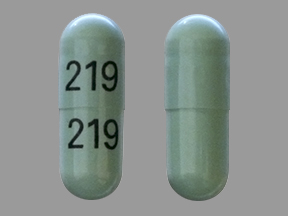Cephalexin Interactions
There are 53 drugs known to interact with cephalexin, along with 7 disease interactions, and 1 alcohol/food interaction. Of the total drug interactions, 6 are major, and 47 are moderate.
- View all 53 medications that may interact with cephalexin
- View cephalexin alcohol/food interactions (1)
- View cephalexin disease interactions (7)
Most frequently checked interactions
View interaction reports for cephalexin and the medicines listed below.
- Aspirin Low Strength (aspirin)
- Augmentin (amoxicillin / clavulanate)
- Benadryl (diphenhydramine)
- Claritin (loratadine)
- CoQ10 (ubiquinone)
- Cymbalta (duloxetine)
- Eliquis (apixaban)
- Fish Oil (omega-3 polyunsaturated fatty acids)
- Flonase (fluticasone nasal)
- Lasix (furosemide)
- Lexapro (escitalopram)
- Lipitor (atorvastatin)
- Lyrica (pregabalin)
- Metoprolol Succinate ER (metoprolol)
- Metoprolol Tartrate (metoprolol)
- MiraLAX (polyethylene glycol 3350)
- Mucinex (guaifenesin)
- Norco (acetaminophen / hydrocodone)
- Ozempic (semaglutide)
- Probiotic Formula (bifidobacterium infantis / lactobacillus acidophilus)
- Synthroid (levothyroxine)
- Tylenol (acetaminophen)
- Tylenol Extra Strength (acetaminophen)
- Vitamin B12 (cyanocobalamin)
- Vitamin C (ascorbic acid)
- Vitamin D3 (cholecalciferol)
- Xanax (alprazolam)
- Xarelto (rivaroxaban)
- Zofran (ondansetron)
- Zyrtec (cetirizine)
Cephalexin alcohol/food interactions
There is 1 alcohol/food interaction with cephalexin.
Cephalexin disease interactions
There are 7 disease interactions with cephalexin which include:
More about cephalexin
- cephalexin consumer information
- Compare alternatives
- Pricing & coupons
- Reviews (510)
- Drug images
- Side effects
- Dosage information
- Patient tips
- During pregnancy
- Support group
- Drug class: first generation cephalosporins
- Breastfeeding
- En español
Related treatment guides
Drug Interaction Classification
| Highly clinically significant. Avoid combinations; the risk of the interaction outweighs the benefit. | |
| Moderately clinically significant. Usually avoid combinations; use it only under special circumstances. | |
| Minimally clinically significant. Minimize risk; assess risk and consider an alternative drug, take steps to circumvent the interaction risk and/or institute a monitoring plan. | |
| No interaction information available. |
See also:
Further information
Always consult your healthcare provider to ensure the information displayed on this page applies to your personal circumstances.


